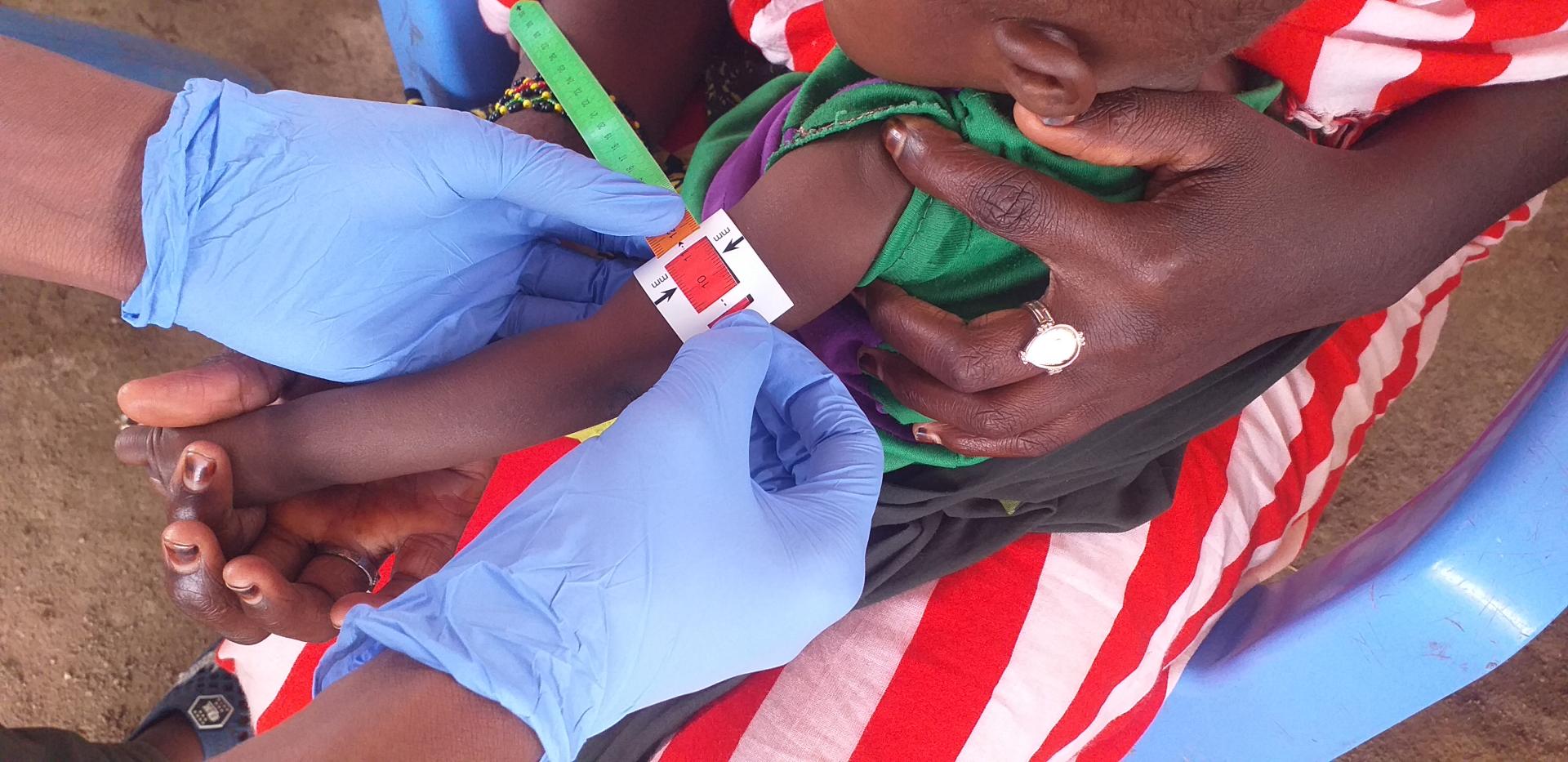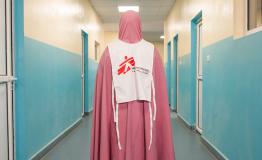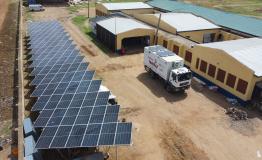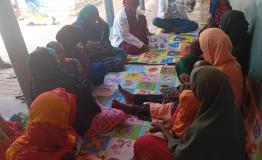As we reflect on the staggering statistics surrounding childhood malnutrition, it is impossible not to feel a deep sense of urgency and empathy. The numbers tell a heart-breaking story: nearly half of all deaths in children under five have an underlying link to malnutrition, and it prevents nearly every fourth child from growing and developing properly.
Emergency contexts exacerbate the interlocking factors causing malnutrition. Seventy per cent of people who are unable to meet their daily nutritional needs live in conflict-affected areas. As a Kenyan medic working with Medecins Sans Frontieres (MSF) over the past 20 years, I have witnessed how healthcare responses have been particularly challenging in such contexts as Somalia, Nigeria, South Sudan, Sudan and Yemen.
Despite the use of a variety of models of care adapted to the difficulties of responding in conflict settings, we as humanitarian workers still face major obstacles in ensuring the provision of medical care to prevent and treat malnutrition and its complications. As a result, we continue to lose lives, often amongst those whose lives represent our very hopes for the future.
Médecins Sans Frontières has implemented decentralised nutrition activities as an effective strategy to help improve access to care in highly insecure contexts. In 2023, through the implementation of community models, our medical teams working in five north-western states of Nigeria admitted over 200,000 malnourished children with severe acute malnutrition in our outpatient and inpatient facilities. Again in 2023, in Somalia, we treated more than 28,000 patients in the outpatient facilities for acute malnutrition in Baidoa city and the surrounding Bay Region.
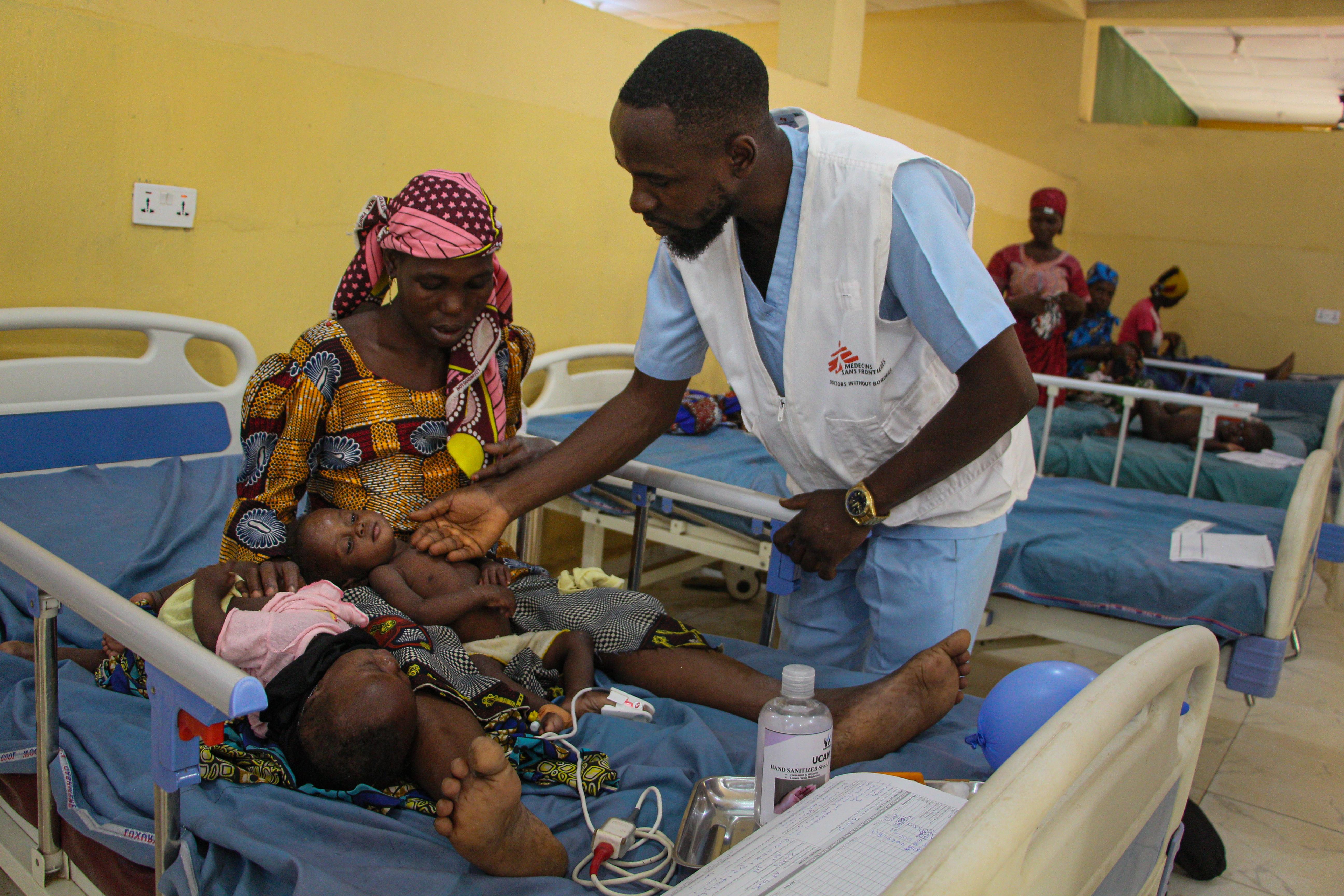
Our community-based models include providing technical and financial support for community health workers and training to caregivers to detect malnutrition in children. However, these approaches come with their own set of challenges, including the risk of violent attacks and kidnapping faced by our teams and community health workers as they bring care closer to people in need.
The cost of delivering lifesaving interventions in insecure environments is also exorbitant, with logistical challenges further exacerbating the financial burden. In Baidoa, to avoid dangerous routes, medical and nutrition supplies must be airlifted, significantly increasing the financial cost for MSF or any other organisation. For example, a 5-tonne-capacity aircraft costs approximately USD 15,000 to charter, whereas a 20-tonne-capacity truck would cost roughly the same amount in more secure conditions.
Restrictions on importation and other bureaucratic impediments can also severely disrupt the supply chain, including in situations where we are instructed to purchase malnutrition supplies locally despite the demand being higher than the available local market supply.
Global inflation has also significantly impacted the reach of food delivery and nutrition programmes. For instance, World Food Programme's monthly operating costs have increased by 44% since 2019. These are challenges also experienced by MSF, which has continued to adapt where possible—albeit imperfectly— to increase access to health services for communities in these crisis contexts.
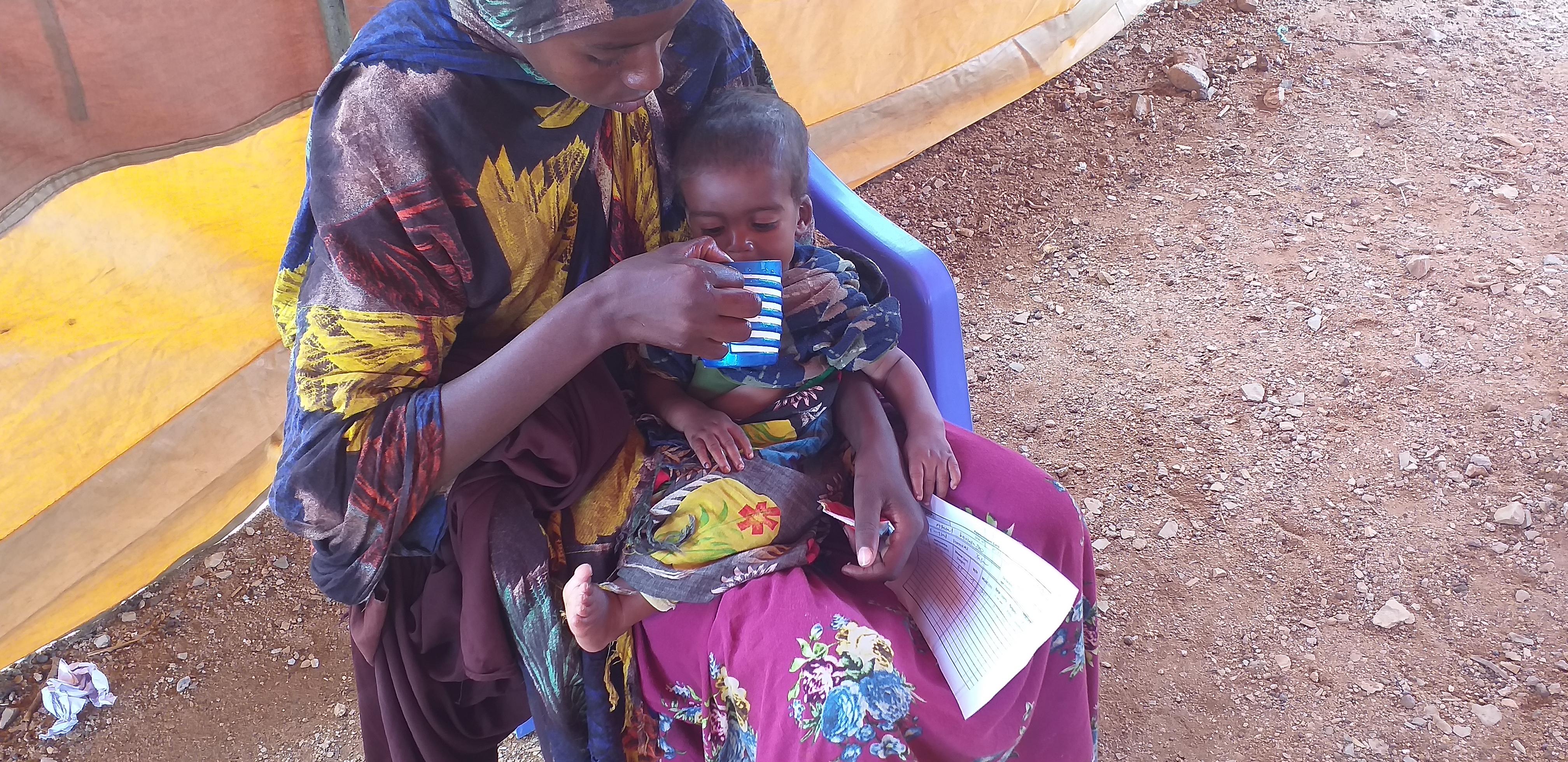
In 2024, amidst the already increasing and foreseeably extreme needs, the decreases in available nutrition funding are very worrying. For example, 30% of institutional cuts are expected for USAID, the largest donor for this sector. Already this year, we have seen seven organisations working on malnutrition leaving Baidoa, while north-western Nigeria has also been experiencing reduction in supplies of therapeutic food used for treatment of malnourished children. Overall, nutrition faces a funding cliff this year exactly when there is a need to have more organisations and institutions involved, and to implement approaches ensuring responses in insecure areas.
The global humanitarian and health community must prioritise adequately funded interventions for highly vulnerable populations residing in insecure environments impacted by conflict or violence. Additionally, I believe in the strong need for increased support to bolster health systems, particularly primary care and surveillance, and to enhance emergency preparedness and response mechanisms, including outbreak management.
We cannot also ignore the pressing need for greater allocation of resources towards preventive measures to avert malnutrition crises and reduce mortality rates in fragile contexts. This includes ensuring routine vaccination provision and addressing coverage gaps, especially in areas marked by insecurity.
In the intricate web of global health, the link between healthcare, illness, and malnutrition forms a vicious cycle that demands our urgent attention. When malnutrition weakens immune systems, individuals become more susceptible to infections, while illness further depletes their nutritional reserves, exacerbating malnutrition. This interplay creates a perilous spiral, especially in vulnerable populations lacking access to adequate healthcare and nutrition.
The malnutrition crisis is a test of our global resolve to protect the most vulnerable. It is a crisis that can be mitigated, if not entirely prevented. As a global community, we must act now so that malnutrition does not claim more lives.
------------------------------------------------------
Kennedy Olela, Kenyan and medical professional by background, has dedicated over two decades to serving with Médecins Sans Frontières (MSF) in some of the world's most challenging environments. Currently, he holds the position of Deputy Operational Manager at the MSF headquarters in Nairobi.
